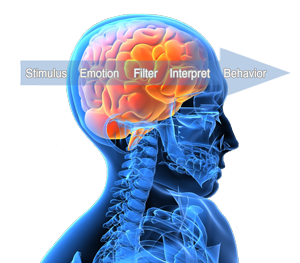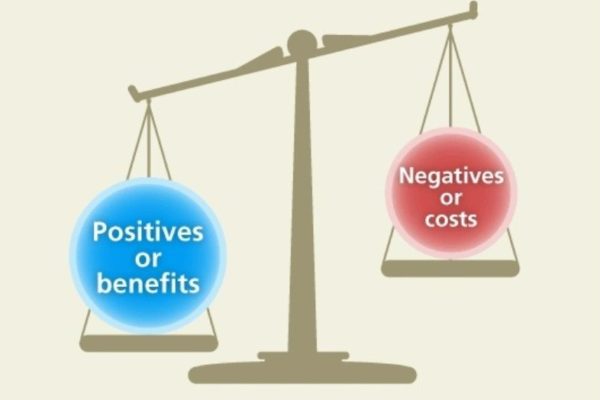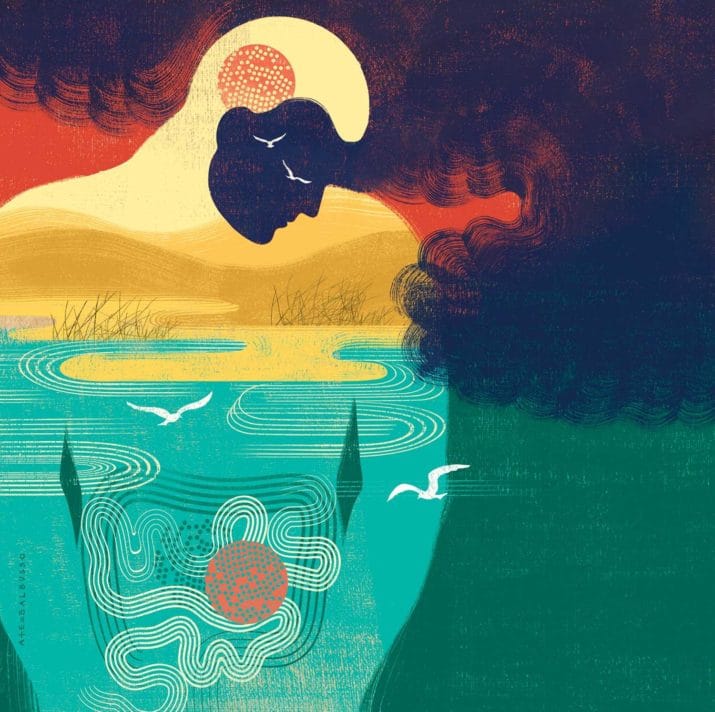Emotions play a vital role in every domain of our lives. However, many of us remain unaware of how much influence our emotional brain has over our behavior. To develop emotional self-awareness, we need to understand how different parts of our brains regulate our emotions.
Three parts of our brain are essential for processing stimuli and creating our emotional experiences. I won’t bore you with the biological logistics, so I refer to the three different brains as the reptile, emotional, and logical brain.
This article will provide insight into how different brain parts respond to stimuli and recommend strategies for developing emotional regulation skills.
The Reptile Brain
250 million years ago, when our ancestors were cave dwellers, the reptile brain played an essential role in survival. The reptile brain is the oldest of our three brains – This part of our brain maintains our body within normal functioning.

The reptile brain took care of breathing and heart rate control all by itself, which allowed our cave-dwelling ancestors to focus on hunting and gathering mushrooms.
However, since this brain works below our level of conscious awareness, it can be very compulsive.
The Emotional Brain
100 million years later, our ancestors started to develop a new part of the brain– the emotional brain.
This part of the brain mainly houses emotional memories and assigns context for emotional meaning. For instance, emotionally arousing memories like everything you ever did make you cringe when you’re lying in bed at night.
More so, the emotional brain is responsible for unconscious judgments. This can trigger fight or flight mechanisms, which meant life or death for our ancestors.
In their environment, this internal signal was incredibly valuable to their survival. Unfortunately, reading a rude e-mail from a colleague can set off our fight or flight mechanism in modern society.
The Logical Brain
Around two to three million years ago, the most advanced part of our brain emerged.
The logical brain is responsible for higher-level thinking, language, and consciousness. Having this part of our brain is what separates us from mammals.
For instance, you can be aware of your negative response to the rude e-mail and ask yourself, “why is my fight or flight going off at a time like this?”
Higher-level thinking can interrupt the fight or flight mechanism from hijacking your overall state of being.
The emotionally intelligent know how to use the logical and emotional brain for particular tasks. The trick is to know how each part of the brain processes stimuli.
Processing Stimuli: The Role of our Logical and Emotional Brain
Our emotional and logical brains work in tandem, painting a unique perspective of the world around us. However, the timing in which both brains receive data differs substantially.


Our emotional brain is constantly assessing threats in our environment. Once a threat is determined, our fight or flight mechanism is immediately activated.
This response is automatic and initiated before the information gets the chance to reach our logical brain.
Unfortunately, data takes a bit longer to reach the logical brain. The time gap between the emotional and logical brain can explain why our emotions easily overpower our rationale. Simply put, the emotional brain has more time to assess and emotionally react.
This emotionally driven impulse response is why during one of your “off” days, you unleash your pent-up rage at a co-worker who was trying to have a friendly conversation
Consequences of Emotion-Driven Impulses
The problem with impulsively reacting to our emotional brain is that it only has a small fraction of the available sensory data. The remaining sensory data resides within the logical brain, which is why we rationally respond with adequate time.
In other words, our emotional brain makes many assumptions. We typically believe those assumptions and react by saying the first thing that comes to mind. It isn’t until time passes that we begin to regret our reactions.
Unconscious reactions damage relationships. People lose faith in our ability to remain calm and objective. Since we cannot understand ourselves, it is impossible to understand others. Eventually, respect and credibility are lost.
Consequentially, self-esteem is also affected, which leads to a downward spiral of negative emotions.
How Can We Prevent Emotion-Driven Impulses?
A good strategy involves remaining mindfully aware, which involves noticing when emotions emerge.
Then, we allow space between the trigger and response. Within this space is freedom of choice. We can choose to react how we typically react or choose a new response.
Another helpful strategy is questioning your emotions. Asking questions like, “what is this trying to tell me?” or “what values are these emotions trying to meet?” can help diffuse the intensity.
You are less likely to automatically take emotions at face value if you start questioning their intent.
Lastly, meditation is an effective way to separate yourself from emotions.
Deep, intentional breathing shuts off the fight or flight mechanism and helps regulate your emotional state.
If you would like to learn more about emotional awareness, check out my podcast!
Conclusion
Remaining unaware of how our three brains process stimuli will prevent you from learning how to manage your emotions.
It is essential to remain mindful of the time gap between the emotional and logical brain and allow sufficient time before responding. This ensures the emotional and logical are working together during decision making.
More so, it is vital to consider the consequences of allowing your emotions to drive your behavior. An honest assessment can give you the energy to develop your emotional intelligence skills.
Three things will help you develop Emotional Self-Awareness. The first is to practice mindful awareness of your emotions as they occur.
Then, learn to question your emotions for intent.
Lastly, if your emotions triggered your fight or flight mechanism, meditation can help regulate your internal emotional state.
If you would like to learn more, please visit my website. I post new articles every Tuesday and Thursday and update my podcast every Monday, Wednesday, and Friday.
If you enjoy my content, please subscribe to either my blog or podcast.
Bianca Cardenas, M.S., Ph.D., is a Fellow in Executive Assessment and Consulting with Leadership Worth Following. Dr. Bianca Cardenas empowers leaders to transcend competition by helping them unlock their people's potential.




